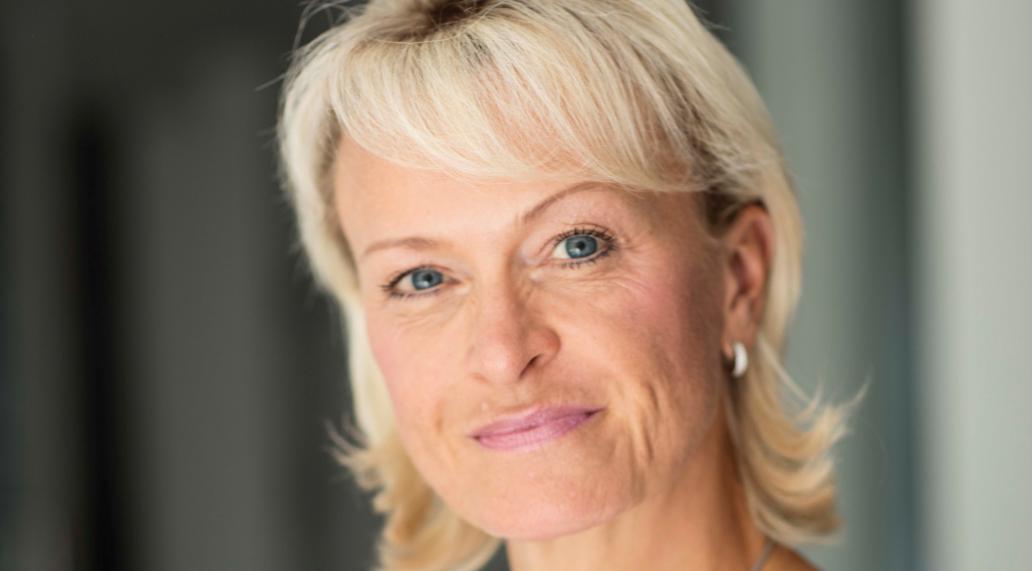
A mindful togetherness is more relevant and important than ever in these difficult times. Unprecedented everyday restrictions and collective uncertainty often lead to disputes and conflicts. Nerves are frayed. Differences of opinion end in a deadlock. People get entangled in accusations and allegations: "But you did...", "And you always say...", "You never do...
Sometimes you need a third person, at the latest, to help take a step back and to be able to hear, understand, and meet each other with appreciation again. A place "beyond right and wrong.
Beate Reinhart, mediator and systemic coach, has supported many people in her career to find this place. A place where respectful interaction with one another becomes (again) possible. We wanted to know from her how this can succeed and how we can overcome our fear of difficult conflict discussions.
Ms. Reinhart, we are very pleased to have you on board as a cooperation partner for famPLUS. You can certainly look back on an exciting career path...
First of all, it fills me with joy and pride to be working with famPLUS in the future. Originally, I come from the business sector and worked as a consultant for almost 20 years at the international tax advisory and auditing firm EY. During this time, I discovered my interest in conflict management, communication, and psychology and pursued a master's degree in Mediation completed and further trained as a Business Coach. My focus areas are internal mediation, coaching, and conflict training. Since 2018, I have been teaching with great passion at campusM21 University and at the WiSo Leadership Academy.
As the owner of your own company "Kompetenz Mensch", you support both companies and organizations as well as executives and employees, and also private individuals in the areas of conflict management, mediation, and Coaching..
The idea for the name came to me while doing the dishes. With the new name "Competence Human," I feel very comfortable. That’s who I am, and that’s how I see myself. It's about a holistic, clear perspective. Honesty, appreciation, and mutual respect are just as important to me as transparency and openness. Knowing where you stand. As soon as those involved embrace honesty - towards themselves and others - mutual rapprochement is possible.
What exactly is mediation? When is it used and how does such a process work?
Mediation (Latin for mediation) originally comes from the USA and is a process for the constructive resolution of a conflict. Mediation is a highly structured process and is based on the understanding that conflicts are more sustainably solvable when the parties involved detach from their demands or positions and instead find a common solution at the level of their genuine interests. In this, the mediator supports the parties in his role as a neutral third party. The crucial aspect is the interest behind a demand: Why do I want this? What is my underlying motive? Each person must first recognize for themselves: What is it really about for me? Only on this basis can the parties involved find a solution that satisfies everyone.
A mediation process is based on certain principles:
- Principle of voluntariness, meaning all participants take part voluntarily and actively work towards a common solution. In the workplace, meaning in a conflict at the workplace, voluntariness is occasionally limited, as mediation often takes place at the request of the management.
- Principle of neutrality, i.e., the mediator is a neutral third party who supports the participants impartially and independently.
- Principle of confidentiality, i.e., the procedure itself, the content, and the outcome are strictly confidential, and the parties involved also agree to maintain silence.
In order for the parties involved to overcome their positions/demands and reach the level of their interests, mediation is conducted in successive steps. Before the actual mediation process begins, the clarification of the mandate and the question of who bears the costs of the procedure or how these are divided are addressed.
- Introduction to Mediation: The participants are informed about the procedure and the process. What is the goal of mediation? What are the mediator's responsibilities? What are the participants' responsibilities? The principles are explained, and the individual steps are presented transparently.
- Clarification of the facts and identification of conflict issues: Everyone has the opportunity to present their perspective on the matter. The aim is to clarify the different perspectives in a protected setting and to work out the individual conflict issues. Based on this, a joint list of topics is created, and the participants jointly determine the order in which they wish to address them.
- Clarification of Interests: The topics are addressed one after another, and the participants clarify their topic-related interests. It's about moving away from demands and focusing on addressing the interests and needs of all parties in a topic-specific and concrete manner. This is a very important phase, as everyone must reflect inwardly and also articulate what their specific concerns are. It is often astonishing how similar or even identical the interests can be. If this phase is successful, it's more than half the battle. Often, the first solutions emerge during the interest phase.
- Solution Development: Based on the interests, joint solutions can now be sought in a collaborative brainstorming session.
- Selection of solutions and conclusion of the final agreement: In this phase, the participants determine which solutions they specifically want to implement. A concrete schedule and assignment of responsibilities are also helpful here. The whole process culminates in a written final agreement, which is documented and signed. Finally, the participants are allowed to formulate a common motto: how do we want to work together in the future?
When is mediation useful, and when is it not?
The basic prerequisite for a successful mediation is that the parties are willing to engage in conversation and actively participate. When does it not make sense? When one party is not willing to talk or interact. The same applies if the positions are so entrenched that an approach is not possible.
How can we generally prepare for difficult conversations? Surely the context plays an important role here too? (professional vs. private)
In a private context, people tend to react much more emotionally. Therefore, it is all the more important to choose a calm moment. Basically, one can prepare for critical conversations. In advance, I consider and clarify for myself: what do I want to achieve with the conversation? What is my goal? With what outcome would I like to end the conversation? What are my topics? Which topics do I actually address and which do I initially keep to myself?
What is my relationship with my conversation partner? How might he or she relate to me? Is this my boss? My colleague? My employee? What is our relationship like? How do I want to be perceived by the other person?
Perspective shift: how might the conversation partner act? Argue?
Careful, where might it become emotional? Keyword: impulse control.
Always important in any communication: showing respect and appreciation to others. Not to criticize the person themselves, but rather a behavior or a situation. It is important to clearly separate the person from the issues at hand.
You also conduct conflict communication training, among other things.
Conflict conversation training is a very good preparation for an upcoming difficult conversation (e.g., with a supervisor). The conversation is role-played in advance with regard to relevant topics. As a trainer, I act as a sparring partner and observer of the coachee: what is the conversation behavior? How does the coachee want to be perceived in the conversation? We work on both verbal and non-verbal communication: appearance, posture, voice... and of course also on the content of the formulations. Additionally, it is about controlling impulses. The goal is to gain confidence and composure during the training.
Are there any general tips and tricks for how a conversation can go well - keyword positive communication?
- Respect and appreciation towards the conversation partner
- Never question the person themselves, only a specific behavior or topic
- Avoid "you" messages, formulate from the "I" perspective: what have I heard, seen, how does it come across to me?
- Demonstrating reliability and confidentiality, adhering to agreements
- Do not use clichés (the other person should feel taken seriously)
- (active) Listening: do not interpret, but ask: "Did I understand that correctly?"
- Let emotions cool down first, following the saying: "Strike the iron when it's cold!
About Beate Reinhart
Beate Reinhart studied business administration at the Faculty of Business, Economics and Social Sciences at the Friedrich-Alexander University Erlangen-Nürnberg and, after graduating as a Diplom-Kauffrau, worked for nearly 20 years at the international tax consultancy and auditing firm EY, providing comprehensive advice and support to clients as a consultant and being responsible for numerous projects in the field of corporate social responsibility and risk management. Her growing interest in conflict management, communication, and psychology led her to pursue a master's degree in Mediation Furthermore, she completed training as a systemic executive coach, NLP master, and soft skill manager in the business sector. In 2008, she founded her own company, Kompetenz Mensch (formerly Klima B). As a mediator, systemic business coach, and trainer, she advises and supports companies and organizations as well as executives, employees, and private individuals in the areas of conflict management and mediation. Coaching and team development. Since the winter semester 2018/19, Ms. Reinhart has been working as a lecturer at the Hochschule campusM21 and at the WiSo Executive Academy in Nuremberg.
The interview was conducted by Doris Kaiser, specialist consultant for psychosocial counseling.
Interviewee:
Beate Reinhart
Master of Mediation
Systemic Executive Coach
www.kompetenz-mensch.com
famPLUS - Together for your personal PLUS!


